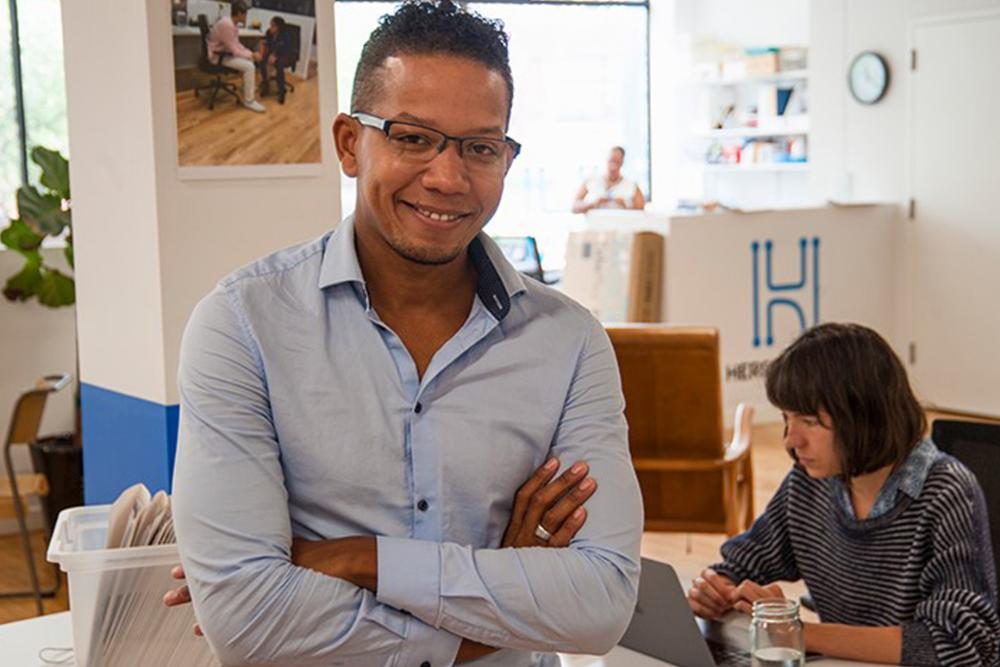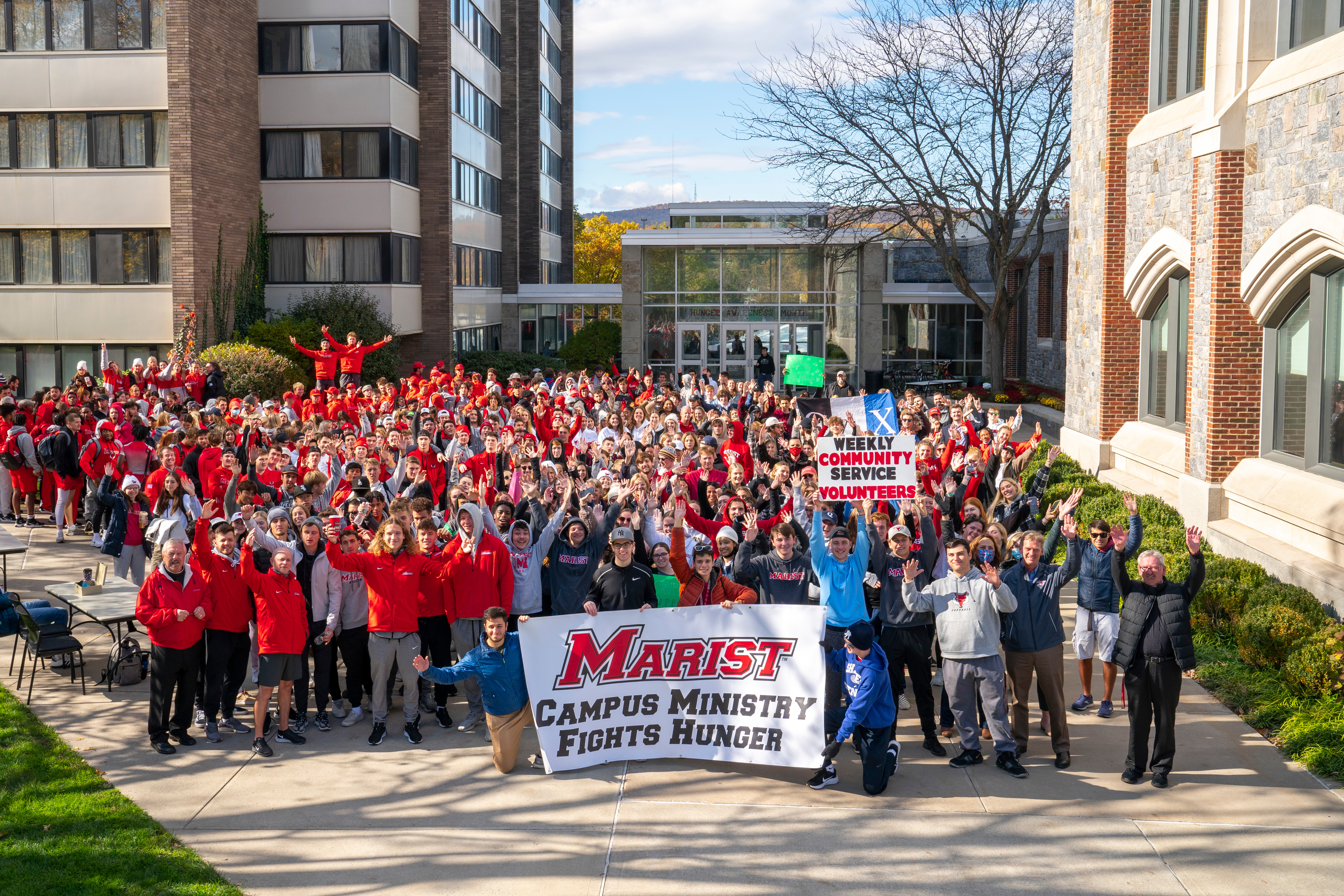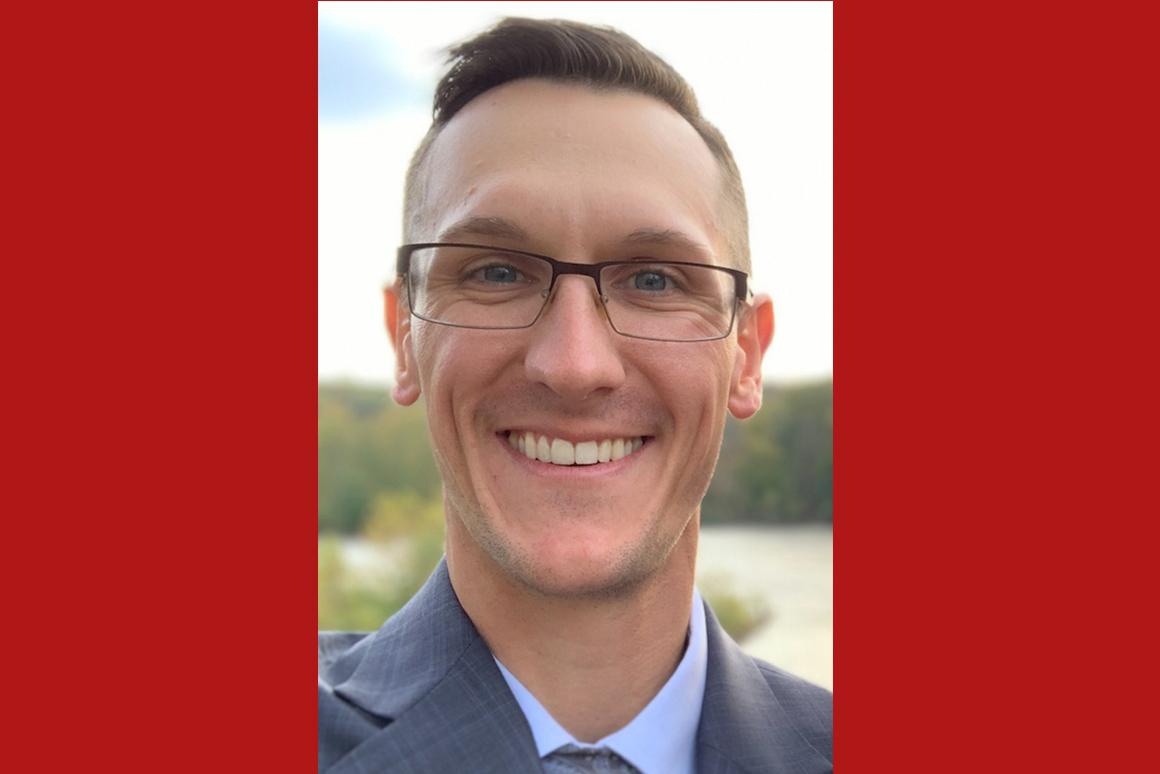Fall/Winter 2025-26

Marist alumnus Dr. Edward Summers ’04/’06M, founder of Bronx-based the Thinkubator, has been named to Robin Hood’s Power Fund, a new initiative supporting leaders of color and their organizations.
Marist alumnus Dr. Edward Summers ’04/’06M, founder of Bronx-based the Thinkubator, has been named to Robin Hood’s Power Fund, a new initiative supporting leaders of color and their organizations. Robin Hood, New York City’s largest poverty-fighting organization, funds impactful and scalable solutions to lift families out of poverty. The Power Fund invests in leaders who share Robin Hood’s mission of increasing economic mobility while championing racial and economic justice. Summers has dedicated his career to economic development in his hometown of the Bronx.To combat the barriers leaders of color face in accessing philanthropic dollars, the Power Fund takes a three-fold approach: a meaningful investment in an organization; targeted capacity-building and technical support; and a self-directed investment in the leader’s own development and elevation. The Power Fund was seeded with an initial investment of $10 million by Robin Hood and investors such as the Stavros Niarchos Foundation, BlackRock, and Capital One.In 2020, Summers founded the Thinkubator, an innovative nonprofit that provides education, career, and work-based learning opportunities for low-income youth in the Bronx. The Thinkubator harnesses their creativity through a youth-led design thinking consultancy, internships, workforce training, career development, job placement, a Youth Council, educational programming, and advocacy. With financial support from the Power Fund, the Thinkubator can now enhance and expand its work. Said Summers, “I am excited, humbled, and honored by this opportunity to elevate the work and impact of the Thinkubator. I look forward to the transformational impact this funding will have on our organization and on the youth and communities we serve.”A two-time Marist graduate, Summers served for seven years as Presidential Fellow and a member of the senior leadership team under Marist President Dennis J. Murray. He is currently on the College’s Alumni Executive Board as well as its Diversity & Inclusion Alumni Advisory Board.
21 Jul 2021

The Hunger Walk takes place for the 29th year.
On Nov. 3, Marist students continued the tradition of the Hunger Walk for the 29th year. The walk was part of Hunger Month, a program organized each November by Campus Ministry.More than 600 people took part in the approximately 30-minute walk around the campus. Students donated $3 each. A total of $1,167 was raised, according to Br. Michael Flanigan, FMS, who has coordinated the Hunger Walk for the past 13 years.Additional activities during Hunger Month include the collection of non-perishable food and Buck Hunger, the collection of donations of a dollar or more.The food is donated to the food pantry at Dutchess Outreach of Poughkeepsie. The cash donations are made to Bread for the World, Lazarus House (Lawrence, MA), the Guadalupe Middle School in Brownsville, TX, and the Lunch Box Soup Kitchen at Dutchess Outreach.
16 Nov 2021

Matthew Szymaszek, DO, has been helping people fight the coronavirus from the outset of the pandemic.
Matthew Szymaszek, DO, has been helping people fight the coronavirus from the outset of the pandemic.The Simsbury, CT, native and long-distance runner for the Marist track and field team graduated in 2007 but returned to the College to finish research that he started with Dr. Zofia Gagnon, a former associate professor of environmental science, before taking the MCAT — the Medical College Admission Test, a standardized test that is part of the medical school admissions process — in 2008. He began medical school at the Lake Erie College of Osteopathic Medicine in Erie, PA, where he met his wife, Lindsey, in 2009. After originally settling down in Delaware, the couple moved to Colorado. In the fall of 2019 Szymaszek started working in critical care for Pulmonary Associates in Colorado Springs, CO. Just a few months later, the world was rocked by the coronavirus. In March 2020, his work environment started changing. “I don’t think there was a single non-COVID patient at one time, and we have a couple different ICUs,” he said about the period around Thanksgiving 2020. “I think one of our towers — 16 beds — was all coronavirus patients, all on ventilators.”As the weeks and months went on, more data and research showed that there were more than just respiratory issues to deal with, namely blood clots that formed in kidneys. Still, day-to-day responsibilities didn’t change all that much. Szymaszek’s routine, he said, consists of “seeing everybody, making sure their work of breathing hadn’t changed, making sure they didn’t develop any other secondary organ disfunction — particularly, any kidney dysfunction — and then it’s symptomatic management after that.” Workplace efficiency, Szymaszek explained, was the primary way his job changed. “Taking care of patients is the primary focus,” he said, “but certainly, you still have to document everything that you’re doing. I think that was the biggest time crunch — trying to see everybody, making sure you weren’t missing anything, making sure all the nurses’ needs were addressed, talking with families.” Since the information about the virus was so fluid, the latter task was time-consuming and difficult to address. Hospital procedures and operation plans were updated daily, primarily in the limitation of visitors at the hospital and how to avoid clutter in ICUs. Patients were admitted to higher levels of care only when their need for additional oxygen escalated. Szymaszek and the other doctors gave input to the hospital’s higher-ups as well as each other. “It was our anecdotal experiences day in and day out that we would share with one another and learn from those things,” he said. One experience that proved to be an astute observation by one of the doctors was the beneficial impact of steroids. Results in the Randomized Evaluation of COVID-19 Therapy (RECOVERY) trial involving hospitalized patients with COVID-19 showed that using dexamethasone over 10 days improved mortality.Learning from experience was a critical part of fighting an unknown enemy. “Our system as a whole, early on, developed a treatment algorithm as things were evolving and coming out of other countries,” Szymaszek said. The components of that algorithm have been and continue to be in flux. At first, they used convalescent plasma donations from recovered patients, which contain antibodies that can fight off the virus. Treatments that have been mainstays, Szymaszek explained, are steroids (such as dexamethasone and Solu-Medrol) and anticoagulation medicines, which help protect against blood clots.Of course, no treatments were discovered to be a magic wand. Steroids brought along problems in people with preexisting conditions, namely with blood-sugar levels. “That’s always been an ongoing battle…because they’re on high-dose steroids off and on for weeks and weeks,” Szymaszek said. “And if they have already have some underlying diabetes and other issues, it just becomes a nightmare to get those things under control.”Vaccines initially slowed the progression of cases and severity of disease, but the advent of the delta variant has only spurred more hospitalizations and unprecedented "crisis standards" of care for some hospital systems. “We continue to have a steady influx of patients infected with coronavirus not just from the local community but also from hospital systems both in and out of the state,” said Szymaszek. “In the beginning of the pandemic, most patients were hospitalized with COVID and there was a noticeable decline in other medical conditions such as stroke or cardiac conditions and even trauma-related cases. Now, we have an increase in both COVID and other medical conditions which is why trying to find open beds for some systems is a challenge. At this stage of the pandemic the vast majority of cases can be prevented with vaccination, and yes, there are going to be breakthrough cases as more people are vaccinated, but the chances of requiring hospitalization or death are incredibly reduced. “The science is constantly evolving and I think that's what is hard for people to understand. What we knew a year or a few months ago may not be true today as we continue to learn more about this virus and its variants.” Szymaszek has paved himself numerous different paths to unwind and get away from work. One of the reasons the Szymaszeks moved to Colorado was to be close to Lindsey’s family so that her parents could help watch their children. Another was that it offered them plenty of outdoor activities. It’s a gold mine for the outdoorsy couple, who live on the north side of Garden of the Gods Park, in the foothills of Pikes Peak Mountain, and within hours of numerous skiing resorts. Szymaszek likes hiking, biking, fly fishing, and taking his boys — six-year-old Owen and five-year-old Evan — walking on nature trails. “My boys are in school and a local mask mandate has dramatically cut cases and quarantines for students and teachers when compared to when it was optional.”Staying true to his roots as a long-distance runner, Szymaszek competes in time trials with his college teammates. The pool of competitors features Sean Hopkins ’05, Sean Prinz ’06, Justin Harris ’07, Michael Schab ’06, and Michael Rolek ’08. Out of boredom during quarantine time, Prinz proposed the idea of doing competitions to stay active. They would pick various events and share the results with each other.Head coach Pete Colaizzo ’86 remembers Szymaszek — or as he called him, CT, the abbreviation for his home state — as “one of the highest-mileage guys on the team,” he said. “Always ran a lot. Always ran twice a day — early morning runs, late night runs, in addition to our practices. He’s the type of guy you just want on the team.” Szymaszek continues to participate in triathlons and half Ironmans, with more races on the horizon this winter and spring. For him, running has always been more than exercise; it’s an emotional outlet.“I don’t think I would have been able to get through med school if it weren’t for the running,” he said. “That was the only thing that was consistent, [that] I knew I could rely on, to go out and clear my mind, think about stuff. That certainly still holds true now.”
21 Jul 2021

We are excited to offer this online directory of alumni-owned businesses for alumni to list their business and for fellow alumni to support alumni-owned businesses around the world.
We are excited to offer this online directory of alumni-owned businesses for alumni to list their business and for fellow alumni to support alumni-owned businesses around the world.If you are a Marist graduate and own a business or are a partner in a business and you'd like to include it in the business directory, click here to submit your listing.*The Alumni Office has the right to remove a business listing at any time. To search the Alumni Business Directory, click http://maristconnect.marist.edu/businessdirectory.*Terms of UseThe use of information contained within for solicitation or any reason other than supporting a business is strictly prohibited. Marist College does not endorse or make any other representations concerning any of the businesses registered in the Directory.
20 Aug 2021